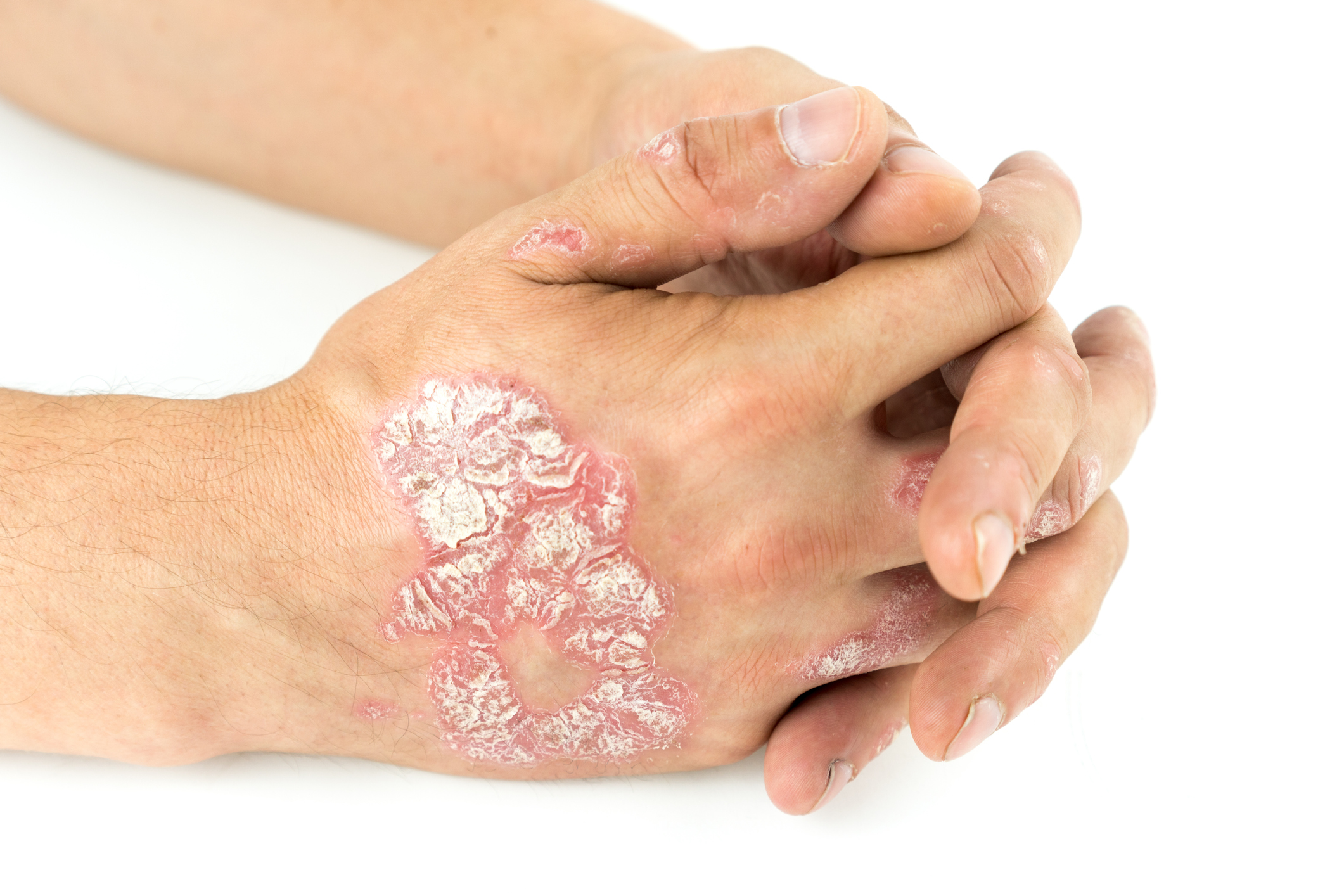WHAT IS PSORIASIS?
Psoriasis refers to a chronic inflammatory skin condition which can be characterized by well-defined red and scaly plaques.

2-4% of North American males and females are affected by psoriasis. It can occur at any age but has two peak stages: at 15-25 years old and 50-60 years old. Psoriasis is a multifactorial condition. The genetic factor plays an important role. 1/3 of patients report having a family history of psoriasis. Psoriasis can also be triggered by other factors like stress, excessive alcohol consumption, obesity, skin injuries, and withdrawal from the oral steroid. Psoriasis appears in the form of symmetrically distributed red and scaly plaque(s) with defined edges.
The condition can appear anywhere on the skin, but the most affected sites are elbows, knees, and scalp. Psoriasis can be treated by topical therapy, phototherapy (usage of ultraviolet radiation), immunosuppressive therapy and biologics.
